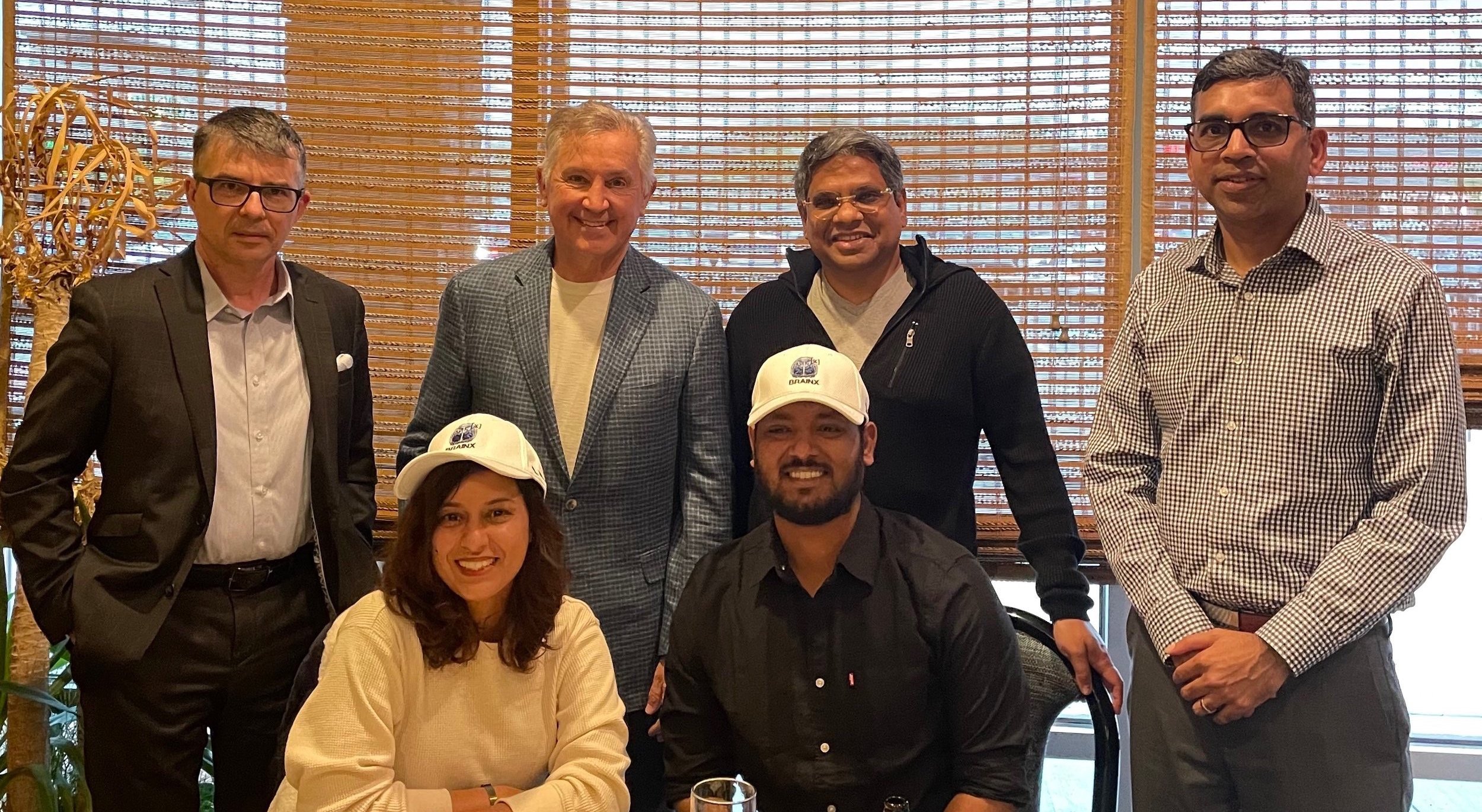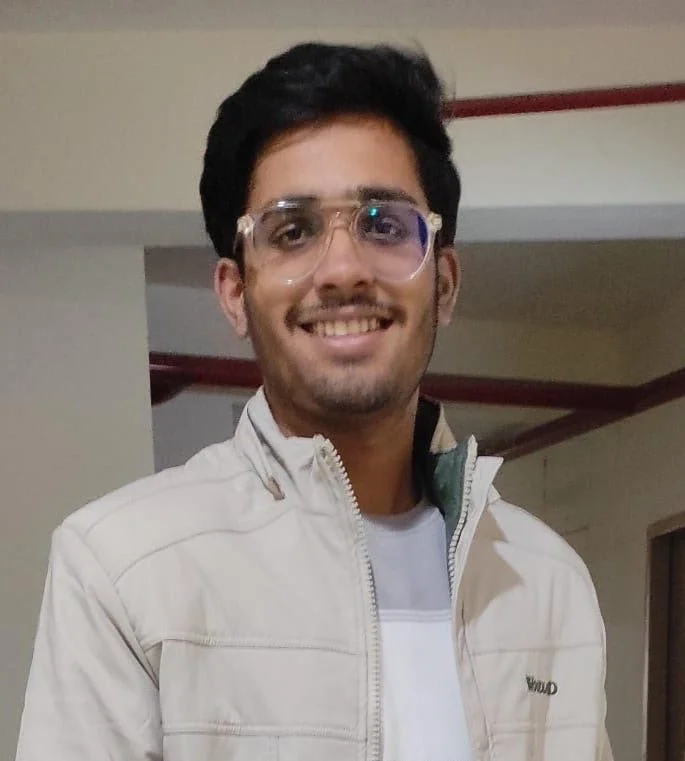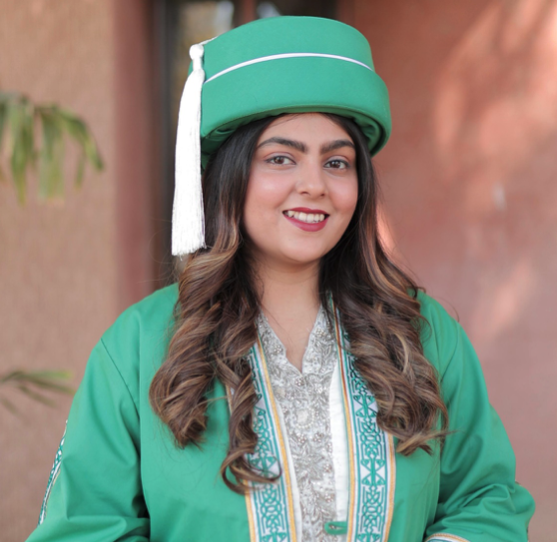BrainXAI ReSearch
Mission: Translating AI for Healthcare implementation
BrainXAI ReSearch is the research lab of BrainX, focused on adaptation and implementation of AI to healthcare. Our award winning work includes all aspects of AI in healthcare implementation including data-centric research, development of state of the art solutions for adoption of AI algorithms to clinical workspace, evaluation and validation of AI algorithms in healthcare, AI education, ethical application of AI, state of and strategy for AI adoption in healthcare.
Our AI experts include Raghav Awasthi, PhD., Shreya Mishra, PhD. and Dwarikanath Mahapatra, PhD., who work with our physician leadership including, Piyush Mathur, MD, Frank Papay, MD, Jacek B. Cywinski, MD, Kamal Maheshwari, MD, Ashish K Khanna, MD, Avneesh Khare, MBBS, MBA,ABAIM, and Chintan Dave, MD.
Our team collaborates with researchers and developers from across the world on multitude of projects. Our award winning work has been published in world’s leading journals such as Nature, BMJ, and has been presented at leading AI conferences such as NeurIPS, MLHC. Contact us by email, contact@brainxai.com , for research and collaboration opportunities.
BrainXAI ReSearch Associates
Lovish Kundu is an experienced Data Scientist with 3 years of experience working for Deloitte. He has completed his Master's in Data Science from Boston University and has worked on multiple healthcare research projects in collaboration with Harvard Medical, Brigham Mass General and Cleveland Clinic. He has great experience in building and deploying Deep Learning and Generative AI models in healthcare domain. He plans to contribute to different Generative AI projects at BrainX.
Anurag Ravi Nimonkar, is a computer science student, currently enrolled in a MS C.S. at University College Dublin(UCD) in Dublin,Ireland. With a diverse background in signal processing, GPGPU programming, HPC and AI/ML engineering; currently looking to contribute to healthcare research by providing cost effective, computationally efficient and modern technical solutions to medical professionals and clients of BrainX AI.
Sharan Jhaveri, MBBS, is a first-year Internal Medicine resident at Cleveland Clinic has always been an advocate for Health-Tech. After graduating medical school, he worked as a clinical scientist at nference, aiming to standardize healthcare data capture. He hosts The Doc Suit podcast, exploring the intersection of Healthcare, Business, and Technology. He co-founded The OTTO Research Initiative and founded The Avani & Subir Jhaveri Foundation, both aimed at enhancing global access to basic research methodology. He continues to explore ways to leverage technology to drive change at scale.
Atharva Bhattad is a student researcher at Indian Institute of Technology (Indian School of Mines) Dhanbad, specializing in data analysis and machine learning across various domains. With a strong background in predictive modeling and AI, Atharva enjoys applying advanced techniques to real-world problems.
Nishant Singh is an experienced Data Scientist and Machine Learning specialist with over 4 years of experience, including roles at Tata Consultancy Services and Boston University. He holds a Master's in Data Science from Boston University and has proven expertise in building data pipelines, developing predictive models, and leveraging advanced machine learning techniques, such as LLMs and Computer Vision.
Shalini Shree is a data scientist and Machine Learning enthusiast with a Master's degree in information systems from Northeastern University. Proficient in Python, SQL, and ML frameworks like TensorFlow and PyTorch, she has experience in building recommendation systems and predictive models and deploying ML solutions for optimization. She aims to leverage her skills to drive impactful AI/ML solutions in healthcare.
BrainXAI ReSearch Interns (2024- 2025)
Manav Thakkar, is a current student at the University of California, Riverside, where he is pursuing a degree in Microbiology. He plans to double major in Data Science starting this upcoming Fall 2024 quarter. He plans to attend medical school as soon as he graduates in 2027
Asma Alshukaili, is a current Medical student at University College Dublin, Ireland. Completed a medical foundation course at Monash College, Australia.Participated in medical research as a student volunteer. Eager to contribute to the field of healthcare by leveraging a strong foundation in medical sciences and passion for continuous learning.
Aarit Atreja is a high school student passionate about the intersection of healthcare, technology, and public policy. Specifically, he's interested in the sustainable development of AI resources and ensuring equitable access for all. He founded the ImpactFuture non-profit to ensure that today’s youth can leverage technology to create a positive societal impact.
BrainXAI ReSearch Interns (2023- 2024)
Rachel Grasfield is a third year medical student at Des Moines University. She completed her undergraduate degree in Psychology and Philosophy at Connecticut College and her post baccalaureate at Harvard University. Prior to medical school, she worked as a Research Coordinator at Brigham and Women's Hospital in the Department of Anesthesiology, Perioperative, and Pain Medicine. Last summer she was awarded a FAER fellowship which she completed at BWH. She is currently the Student Liaison for the Iowa Society of Anesthesiologists and sits on the Executive Board of the Women in Anesthesiology MSC.
Julia Maslinski is an undergraduate honors student studying Integrative Neuroscience and Mathematics at Binghamton University, where she researches Parkinson’s Disease in the Bishop Lab. Throughout her studies, she has developed a passion for the intersection between brain studies, computer science, and mathematics. She also conducted research in the Jing Wang lab of the NYU Grossman School of Medicine last summer, and plans on pursuing a PhD in Neural Computation with Machine Learning.
Anabelle Cohen is a pre-medical student majoring in Integrative Neuroscience at Binghamton University. She is currently a clinical research assistant at Cohen Children’s Medical Center at Northwell Health in the Pediatric Orthopedic Department. Furthermore, Anabelle is passionate about how AI could benefit Anesthesiology —specifically monitoring patients during surgery and detecting patient outcomes for anesthesia dosing— and potential risks in AI, data breaches and bias.
Hajra Arshad, MBBS, an aspiring physician-scientist, is a medical graduate from Aga Khan University, Pakistan. She has developed a keen interest in the transformative potential of artificial intelligence in public health. She is particularly focused on how AI and advancements in technology can enhance healthcare systems in Low- and Middle-Income Countries (LMICs). With a strong foundation in medicine, she is passionate about exploring innovative technological solutions to revolutionize the global healthcare landscape. She aims to pursue a medical residency in the US in the future.
Izabella DiRosa is an undergraduate student at Binghamton University studying Integrative Neuroscience and Health and Wellness on the pre-medical track. She is a research assistant in a neuroscience lab studying Parkinson’s Disease and understanding the complexities of the human brain. In addition to academic pursuits, Izabella serves as a certified nursing assistant in the emergency department. Through immersive experiences shadowing in the operating room, she has developed a profound fascination with the intersection of medicine and technology, particularly the transformative potential of AI.
Sai Prasad Ramachandran, MBBS, is a recent graduate from Armed Forces Medical College, Pune, India. He has been involved in research from an early stage in his career and served as the secretary of the Students' Scientific Society in his medical school. He has presented at various international conferences and was selected as an ISCOMS research fellow at the University of Groningen, Netherlands in 2021. Sai is also an enthusiast for innovation, having participated in and won several hackathons. He is currently working towards pursuing a residency in Internal Medicine.
Member Publications
Artificial Intelligence in Critical Care. Mathur P ,M.L. Burns, Int Anesthesiol Clin, 2019. 57(2): p. 89-102.
Identify and monitor clinical variation using machine intelligence: a pilot in colorectal surgery.Maheshwari K, Cywinski J, Mathur P, et al. Clin Monit Comput. 2018
Multimodal Machine Learning for Automated ICD Coding Proceedings of the 4th Machine Learning for Healthcare Conference. Keyang Xu, Mathur P, Frank Papay, Ashish K. Khanna, Jacek B. Cywinski, Kamal Maheshwari, Pengtao Xie, Eric P. Xing ; PMLR.106:197-215, 2019
Machine learning models for perioperative research.Maheshwari K, Mathur P, Turan A. J Clin Anesth.2020;67:109990.
In response to 'The clinical artificial intelligence department: a prerequisite for success'. Mathur P, Maheshwari K, Papay F. BMJ Health Care Inform.2020;27(3)
Evaluation framework to guide implementation of AI systems into healthcare settings. Reddy S, Rogers W, Makinen VP, Coiera E, Brown P, Wenzel M, Weicken E, Ansari S, Mathur P, Casey A, Kelly B.BMJ Health Care Inform. 2021
Automated analysis of ambulatory surgery patient experience comments using artificial intelligence for quality improvement: A patient centered approach. Piyush Mathur, Jacek B Cywinski, Kamal Maheshwari, Francis A Papay.Intelligence-Based Medicine. 2021
DECIDE-AI: new reporting guidelines to bridge the development-to-implementation gap in clinical artificial intelligence. Baptiste Vasey, Piyush Mathur, Peter McCulloch, et al.Nature Medicine. 2021
Artificial Intelligence for Perioperative Medicine: Perioperative Intelligence. Maheshwari, Kamal ; Cywinski, Jacek B. ; Papay, Frank ; Khanna, Ashish K.; Mathur, Piyush .Anesthesia & Analgesia 2023.
2019 Year in review: Machine Learning in Healthcare. Piyush Mathur, Ashish K. Khanna, Jacek B. Cywinski, Kamal Maheshwari, et al.Researchgate.
Explainable machine learning models to understand determinants of COVID-19 mortality in the United States.Mathur, P., Tavpritesh Sethi, Anya Mathur, Ashish Kumar Khanna, Kamal Maheshwari, Jacek B Cywinski, Simran Dua, Frank Papay. medRxiv 2020
Artificial Intelligence in Healthcare - 2020 Year in Review. Maheshwari, Kamal ; Cywinski, Jacek B. ; Papay, Frank ; Khanna, Ashish K.; Mathur, Piyush, et al..Researchgate.2021.
DiagnosisQA: A semi-automated pipeline for developing clinician validated diagnosis specific QA datasets. Shreya Mishra, Raghav Awasthi, Frank Papay, Kamal Maheshawari, Jacek B Cywinski, Ashish Khanna, Piyush Mathur. medRxiv. 2021.NeurIPS 2021.
Artificial Intelligence in Healthcare: 2021 Year in Review. Maheshwari, Kamal ; Cywinski, Jacek B. ; Papay, Frank ; Khanna, Ashish K.; Mathur, Piyush, et al.DOI: 10.13140/RG.2.2.25350.24645/1
ShockModes: A Multimodal Model for Prognosticating Intensive Care Outcomes from Physician Notes and Vitals. Pal, R., S. Patel, A. Bhatnagar, H. Garg, P. Singh, R. S. Soun, A. Agarwal, A. Nagori, A. Khanna, R. Lodha, P. Mathur and T. Sethi . medRxiv: 2022.
Quantitative and Qualitative evaluation of the recent Artificial Intelligence in Healthcare publications using Deep-Learning. Awasthi, R., Mishra, S., Cywinski, J. B., Maheshwari, K., Khanna, A. K., Papay, F. A., & Mathur, P. . Quantitative and Qualitative evaluation of the recent Artificial Intelligence in Healthcare publications using Deep-Learning. medRxiv, 2023.
Artificial Intelligence in Healthcare: 2022 Year in Review.Maheshwari, Kamal ; Cywinski, Jacek B. ; Papay, Frank ; Khanna, Ashish K.; Mathur, Piyush, et al. Researchgate.2023
Extended-age Out-of-sample Validation of Risk Stratification Index 3.0 Models Using Commercial All-payer Claims. Scott Greenwald, George F. Chamoun, Nassib G. Chamoun, David Clain, Zhenyu Hong, Richard Jordan, Paul J. Manberg, Kamal Maheshwari, Daniel I. Sessler; Anesthesiology 2023; 138:264–273
Endotypes of intraoperative hypotension during major abdominal surgery: a retrospective machine learning analysis of an observational cohort study. Kouz K, Brockmann L, Timmermann LM, Bergholz A, Flick M, Maheshwari K, Sessler DI, Krause L, Saugel B. Br J Anaesth. 2023 Mar;130(3):253-261.
Development and Evaluation of a Risk-Adjusted Measure of Intraoperative Hypotension in Patients Having Nonemergent, Noncardiac Surgery. Christensen AL, Jacobs E, Maheshwari K, Xing F, Zhao X, Simon SE, Domino KB, Posner KL, Stewart AF, Sanford JA, Sessler DI.Anesth Analg. 2021 Aug 1;133(2):445-454.
Assisted Fluid Management Software Guidance for Intraoperative Fluid Administration. Maheshwari K, Malhotra G, Bao X, Lahsaei P, Hand WR, Fleming NW, Ramsingh D, Treggiari MM, Sessler DI, Miller TE; Assisted Fluid Management Study Team. Anesthesiology. 2021 Aug 1;135(2):273-283.
Hypotension Prediction Index with non-invasive arterial pressure waveforms in non-cardiac surgical patients. Maheshwari K, Buddi S, Jian Z, Settels J, Shimada T, Cohen B, Sessler DI, Hatib F. Performance of the J Clin Monit Comput. 2021 Feb;35(1):71-78.
Hypotension Prediction Index for Prevention of Hypotension during Moderate- to High-risk Noncardiac Surgery. Maheshwari K, Shimada T, Yang D, Khanna S, Cywinski JB, Irefin SA, Ayad S, Turan A, Ruetzler K, Qiu Y, Saha P, Mascha EJ, Sessler DI. Anesthesiology. 2020 Dec 1;133(6):1214-1222.
Abnormal shock index exposure and clinical outcomes among critically ill patients: A retrospective cohort analysis. Maheshwari K, Nathanson BH, Munson SH, Hwang S, Yapici HO, Stevens M, Ruiz C, Hunley CF. J Crit Care. 2020 Jun;57:5-12.
CovidNLP: A web application for distilling systemic implications of COVID-19 pandemic with natural language processing. Awasthi, Raghav, et al MedRxiv (2020): 2020-04.
Vacsim: Learning effective strategies for covid-19 vaccine distribution using reinforcement learning. Awasthi, Raghav, et al Intelligence-Based Medicine 6 (2022): 100060
Learning the mental health impact of COVID-19 in the United States with explainable artificial intelligence: observational study. Jha, I. P., Awasthi, Raghav, Kumar, A., Kumar, V., & Sethi, T. (2021) JMIR mental health 8.4 (2021): e25097.
Global generalisability of AI-driven COVID-19 vaccination policies: a cross-sectional observational study.Awasthi, Raghav, Aditya Nagori, and Bouchra Nasri. medRxiv (2023): 2023-01.
Use of artificial intelligence based models for learning better policy for maternal and child health. Sethi, T., and Awasthi,Raghav. European Journal of Public Health 30.Supplement_5 (2020): ckaa165-291
A Graph Embedding Approach for Deciphering the Longitudinal Associations of Global Mobility and COVID-19 Cases. Awasthi, Raghav, et al." medRxiv (2023): 2023-03
Estimating the impact of health systems factors on antimicrobial resistance in priority pathogens.Awasthi, Raghav, et al. " Journal of Global Antimicrobial Resistance 30 (2022): 133-142.
Machine Learning Models to Predict Major Adverse Cardiovascular Events After Orthotopic Liver Transplantation: A Cohort Study.Jain V, Bansal A, Radakovich N, Sharma V, Khan MZ, Harris K, Bachour S, Kleb C, Cywinski J, Argalious M, Quintini C, Menon KVN, Nair R, Tong M, Kapadia S, Fares M.J Cardiothorac Vasc Anesth. 2021 Jul;35(7):2063-2069. doi: 10.1053/j.jvca.2021.02.006. Epub 2021 Feb 7.
Bias in artificial intelligence algorithms and recommendations for mitigation. Nazer LH, Zatarah R, Waldrip S, Ke JXC, Moukheiber M, Khanna AK, Hicklen RS, Moukheiber L, Moukheiber D, Ma H, Mathur P. PLOS Digit Health. 2023 Jun 22;2(6):e0000278.
Class Specific Feature Disentanglement and Text Embeddings for Multi-label Generalized Zero Shot CXR Classification Dwarikanath Mahapatra, Antonio Jose Jimeno Yepes, Shiba Kuanar, Sudipta Roy, Behzad Bozorgtabar, Mauricio Reyes, Zongyuan Ge. International Conference on Medical Image Computing and Computer-Assisted Intervention. – MICCAI 2023. MICCAI 2023. Lecture Notes in Computer Science, vol 14221. Springer, Cham. https://doi.org/10.1007/978-3-031-43895-0_26
Attention-Conditioned Augmentations for Self-Supervised Anomaly Detection and Localization. Bozorgtabar, B., & Mahapatra, D. (2023).Proceedings of the AAAI Conference on Artificial Intelligence, 37(12), 14720-14728. https://doi.org/10.1609/aaai.v37i12.26720
Graph Node Based Interpretability Guided Sample Selection for Active Learning, D. Mahapatra, A. Poellinger and M. Reyes, IEEE Transactions on Medical Imaging, vol. 42, no. 3, pp. 661-673, March 2023, doi: 10.1109/TMI.2022.3215017.
Interpretability-guided inductive bias for deep learning based medical image D Mahapatra, A Poellinger, M Reyes - Medical image analysis, 2022
Self-Supervised Generalized Zero Shot Learning for Medical Image Classification Using Novel Interpretable Saliency Maps, D. Mahapatra, Z. Ge and M. Reyes, IEEE Transactions on Medical Imaging, vol. 41, no. 9, pp. 2443-2456, Sept. 2022, doi: 10.1109/TMI.2022.3163232.
Interpretability-Driven Sample Selection Using Self Supervised Learning for Disease Classification and Segmentation, D. Mahapatra, A. Poellinger, L. Shao and M. Reyes, IEEE Transactions on Medical Imaging, vol. 40, no. 10, pp. 2548-2562, Oct. 2021, doi: 10.1109/TMI.2021.3061724.
Pathological Retinal Region Segmentation From OCT Images Using Geometric Relation Based Augmentation, D. Mahapatra, B. Bozorgtabar, L. Shao, , IEEE CVPR 2020, pp 9611-9620.
HumanELY: Human evaluation of LLM yield, using a novel web-based evaluation tool. Awasthi, R., S. Mishra, D. Mahapatra, A. Khanna, K. Maheshwari, J. Cywinski, F. Papay and P. Mathur (2023). medRxiv: 2023.2012.2022.23300458.
Artificial Intelligence in Healthcare: 2023 Year in Review. Raghav Awasthi, Shreya Mishra, Rachel Grasfield, Julia Maslinski, Dwarikanath Mahapatra, Jacek B. Cywinski, Ashish K. Khanna, Kamal Maheshwari, Chintan Dave, Avneesh Khare, Francis A. Papay, Piyush Mathur. medRxiv. 2024. https://doi.org/10.1101/2024.02.28.24303482
Artificial Intelligence in Healthcare: 2023 Year in Review Dataset. Julia Maslinski, Rachel Grasfield B, Raghav Awasthi, Shreya Mishra, Dwarikanath Mahapatra, Jacek B Cywinkski, Ashish K. Khanna, kamal maheshwari, Chintan Dave, Avneesh Khare, Francis A. Papay, Piyush Mathur(2024). figshare. Dataset. https://doi.org/10.6084/m9.figshare.25670019.v3
Protocol for the development of the Chatbot Assessment Reporting Tool (CHART) for clinical advice.BMJ Open 2024;14:e081155. doi: 10.1136/bmjopen-2023-081155
HUMANE: Harmonious Understanding of Machine Learning Analytics Network—global consensus for research on artificial intelligence in medicine. Deo N, Nawaz FA, du Toit C, Tran T, Mamillapalli C, Mathur P, et al. Exploration of Digital Health Technologies. 2024;2(3):157-66.
A Literature Review and Framework for Human Evaluation of Generative Large Language Models in Healthcare.Tam TY, Sivarajkumar S, Kapoor S, Stolyar AV, Polanska K, McCarthy KR, Osterhoudt H, Wu X, Visweswaran S, Fu S, Mathur P, Yanshan Wang. arXiv preprint arXiv:2405.02559. 2024 May 4.
A framework for human evaluation of large language models in healthcare derived from literature review. Thomas Yu Chow Tam, Sonish Sivarajkumar, Sumit Kapoor, Alisa V. Stolyar, Katelyn Polanska, Karleigh R. McCarthy, Hunter Osterhoudt,
Xizhi Wu, Shyam Visweswaran, Sunyang Fu, Piyush Mathur, Giovanni E. Cacciamani, Cong Sun, Yifan Peng & Yanshan Wang . npj Digit. Med. 7, 258 (2024). https://doi.org/10.1038/s41746-024-01258-7
Strategic and Value-based Implementation of Generative AI in Healthcare. Piyush Mathur. MedicalTech Magazine. September 2024
Navigating AI: A Quick Start Guide for Healthcare Professionals.Mathur P, Arshad H, Grasfield R, Khatib R, Aggarwal A, Auron M, Khare A. Cureus. 2024 Oct 27;16(10):e72501. doi: 10.7759/cureus.72501. PMID: 39600775; PMCID: PMC11595564.
USING LARGE LANGUAGE MODELS TO ANNOTATE SUBSTANCE USE BEHAVIOR FROM ICU PATIENTS’ CLINICAL NOTES. Mathur, Piyush; Maslinski, Julia; DiRosa, Izabella; Cohen, Anabelle; Arshad, Hajra; Mahapatra, Dwarikanath; Mishra, Shreya; Awasthi, Raghav. 388: Critical Care Medicine 53(1):, January 2025. | DOI: 10.1097/01.ccm.0001100216.27824.e9
Translational AI: Bridging the Gap Between Research and Clinical Practice. Sandeep Reddy and Piyush Mathur. ScienceOpen Preprints. 2025. DOI: 10.14293/PR2199.001444.v1
Artificial Intelligence in Healthcare: 2024 Year in Review. Awasthi, R., Ramachandran, S. P., Mishra, S., Mahapatra, D., Arshad, H., Atreja, A., . . . Mathur, P. (2025). medRxiv, 2025.2002.2026.25322978. doi:10.1101/2025.02.26.25322978
Theory of Mind Imitation by LLMs for Physician-Like Human Evaluation. Awasthi, R., Mishra, S., Raghu, C., Auron, M., Atreja, A., Mahapatra, D., . . . Mathur, P. (2025).medRxiv, 2025.2003.2001.25323142. doi:10.1101/2025.03.01.25323142
Health Care Quality and Patient Safety in the Era of Artificial Intelligence. Piyush Mathur, Reem Khatib, Dharan Sankar Jaisankar, Ashish Atreja. Medical Clinics of North America,2025,ISSN 0025-7125, https://doi.org/10.1016/j.mcna.2025.02.006.
Book
Strategies for Artificial Intelligence in Healthcare: Real-World Solutions for Reshaping Healthcare Through Artificial Intelligence and Beyond. Frank A. Papay , Piyush Mathur , Jeffrey A Mangus. ISBN: 979-8327613799. August 2024.
Voices of Innovation - AI:Fulfilling the Promise of AI in Healthcare. Edited By Edward W. Marx, Sakshika Dhingra, Frank Papay, Piyush Mathur. 1st Edition.2025. ISBN 9781032715100.
Book chapters
Mathur P, Papay F., Building an artificial intelligence (AI) in medicine ecosystem. Intelligence-Based Medicine. 2020
Bhavani S, Khanna A, Mathur P, Albumin in the critically ill. Perioperative Fluid Management.Second Edition.2020
Mathur P, Cywinksi J, Papay F, Artificial Intelligence for perioperative fluid management.Perioperative Fluid Management.Second Edition.2020
Font M, Khanna A, Mathur P, Case scenario for fluid therapy in Septic Shock.Perioperative Fluid Management.Second Edition.2020
Impacting Perioperative quality and patient safety using Artificial Intelligence.Mathur P, Jacek B. Cywinski, Francis Papay.Artificial Intelligence: Applications in Healthcare Delivery.1st Edition.2020.
Mathur P, Ashish K Khanna, Tavpritesh Sethi.Artificial Intelligence and Management of Hypotension. ISCCM Critical Care Update 2022.
Mathur P, Nirbus Bughrara, Benjamin Hoenig, Ashish K. Khanna Artificial Intelligence Tools to Optimize Hemodynamics in the ICU.ISCCM Critical Care Update 2023.
Mathur P, Sean McManus. Reem Khatib. Artificial intelligence applications in anesthesiology. Artificial Intelligence in Clinical Practice. How AI Technologies Impact Medical Research and Clinics. First Edition, 2023.
Mathur P, Chao-Ping Wu. Artificial intelligence applications in critical care. Artificial Intelligence in Clinical Practice. How AI Technologies Impact Medical Research and Clinics. First Edition, 2023.
Mathur P, Frank Papay. The Translational Application of AI in Healthcare. Translational Application of Artificial Intelligence in Healthcare. First edition. 2023
Mathur P, Bart Geerts. Barriers and Solutions to Adoption of AI in Healthcare. Translational Application of Artificial Intelligence in Healthcare. First edition. 2023
















